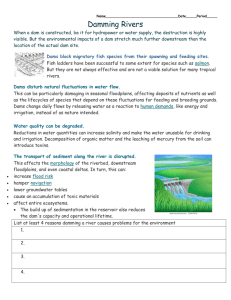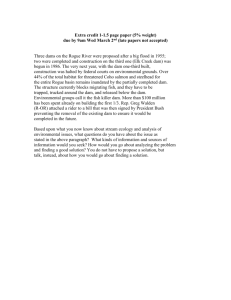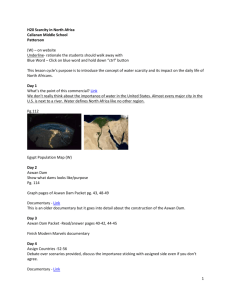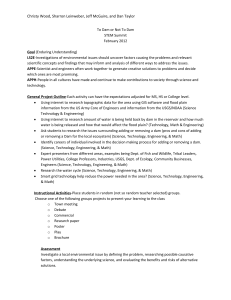Social impact of dam building projects in Ethiopia
advertisement
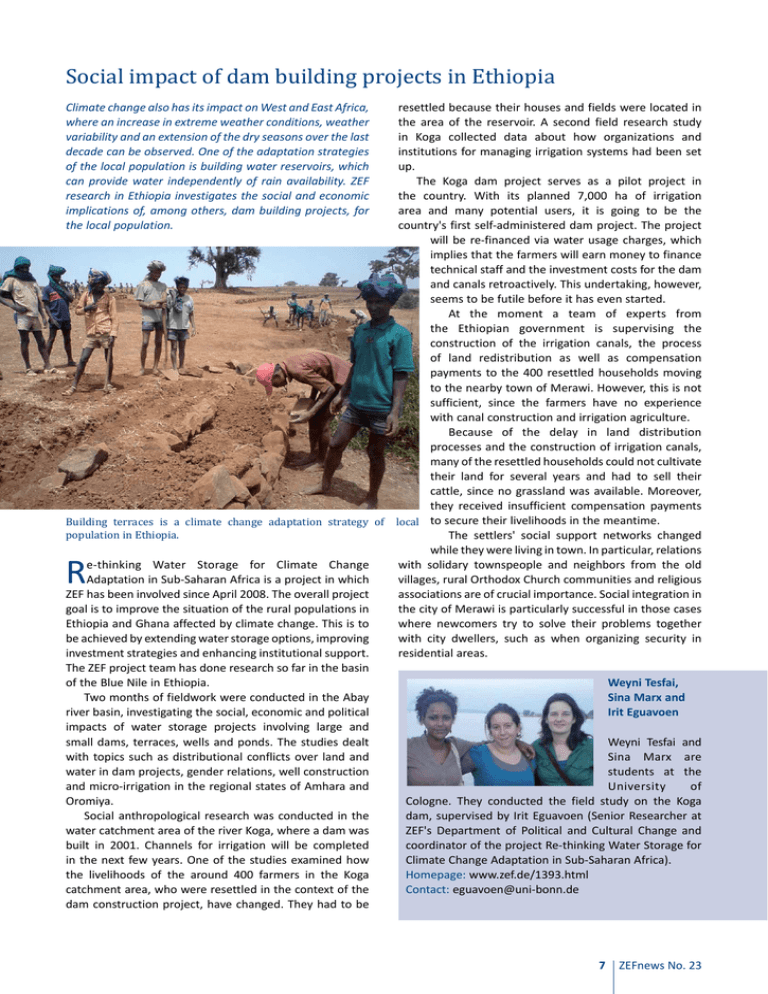
Social impact of dam building projects in Ethiopia Climate change also has its impact on West and East Africa, where an increase in extreme weather conditions, weather variability and an extension of the dry seasons over the last decade can be observed. One of the adaptation strategies of the local population is building water reservoirs, which can provide water independently of rain availability. ZEF research in Ethiopia investigates the social and economic implications of, among others, dam building projects, for the local population. resettled because their houses and fields were located in the area of the reservoir. A second field research study in Koga collected data about how organizations and institutions for managing irrigation systems had been set up. The Koga dam project serves as a pilot project in the country. With its planned 7,000 ha of irrigation area and many potential users, it is going to be the country's first self-administered dam project. The project will be re-financed via water usage charges, which implies that the farmers will earn money to finance technical staff and the investment costs for the dam and canals retroactively. This undertaking, however, seems to be futile before it has even started. At the moment a team of experts from the Ethiopian government is supervising the construction of the irrigation canals, the process of land redistribution as well as compensation payments to the 400 resettled households moving to the nearby town of Merawi. However, this is not sufficient, since the farmers have no experience with canal construction and irrigation agriculture. Because of the delay in land distribution processes and the construction of irrigation canals, many of the resettled households could not cultivate their land for several years and had to sell their cattle, since no grassland was available. Moreover, they received insufficient compensation payments Building terraces is a climate change adaptation strategy of local to secure their livelihoods in the meantime. population in Ethiopia. The settlers' social support networks changed while they were living in town. In particular, relations e-thinking Water Storage for Climate Change with solidary townspeople and neighbors from the old Adaptation in Sub-Saharan Africa is a project in which villages, rural Orthodox Church communities and religious ZEF has been involved since April 2008. The overall project associations are of crucial importance. Social integration in goal is to improve the situation of the rural populations in the city of Merawi is particularly successful in those cases Ethiopia and Ghana affected by climate change. This is to where newcomers try to solve their problems together be achieved by extending water storage options, improving with city dwellers, such as when organizing security in investment strategies and enhancing institutional support. residential areas. The ZEF project team has done research so far in the basin of the Blue Nile in Ethiopia. Weyni Tesfai, Two months of fieldwork were conducted in the Abay Sina Marx and river basin, investigating the social, economic and political Irit Eguavoen impacts of water storage projects involving large and small dams, terraces, wells and ponds. The studies dealt Weyni Tesfai and with topics such as distributional conflicts over land and Sina Marx are water in dam projects, gender relations, well construction students at the and micro-irrigation in the regional states of Amhara and University of Oromiya. Cologne. They conducted the field study on the Koga Social anthropological research was conducted in the dam, supervised by Irit Eguavoen (Senior Researcher at water catchment area of the river Koga, where a dam was ZEF's Department of Political and Cultural Change and built in 2001. Channels for irrigation will be completed coordinator of the project Re-thinking Water Storage for in the next few years. One of the studies examined how Climate Change Adaptation in Sub-Saharan Africa). the livelihoods of the around 400 farmers in the Koga Homepage: www.zef.de/1393.html catchment area, who were resettled in the context of the Contact: eguavoen@uni-bonn.de dam construction project, have changed. They had to be R 7 ZEFnews No. 23
